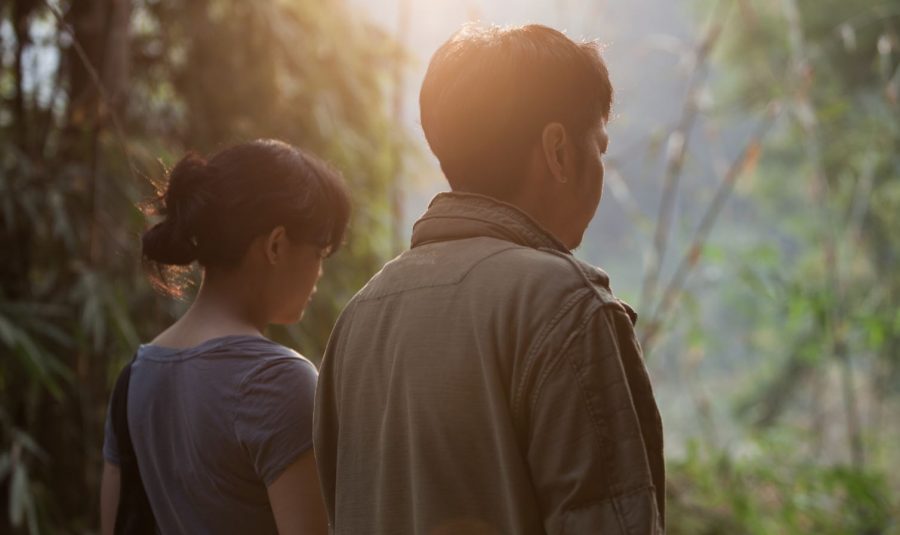‘Dao Khanong’ Meditates on a Massacre
Courtesy of the Film Society of Lincoln Center
Anocha Suwichakornpong’s new film “Dao Khanong (By the Time It Gets Dark),” which explores the tragic history of the 1976 massacre at the Thammasat University in Thailand, opens April 14.
April 13, 2017
In her director’s statement for her new film “By the Time It Gets Dark,” Anocha Suwichakornpong said, “[This film] is my attempt to deal with the impossibility of making a historical film in the place where there is no history.”
That place is Thailand, where the authorities still obscure the memories of military atrocities carried out on civilians. One of the most traumatic events in Thailand’s history was the 1976 massacre of protesting students at the Thammasat University, according to Time. Since the military perpetrators were never persecuted, the injustice remains unarticulated and barred from entering into collective memory. In her film, Suwichakornpong grapples with the dissonances between public and private memory, beginning with an investigation into the recollections of the massacre. Without explicitly describing the event, she shows the audience different forms of remembering — a prayer by a tree where lynchings may have been carried out, a staging of brutal arrests. Finally, we enter a narrative about a young filmmaker attempting to write a biography about a former student protester and current writer. The two women stay at a secluded and serene house while the filmmaker conducts interviews with her subject. Suwichakornpong intertwines these brief conversations with re-enactments of the writer as a young student. She entertains historical facts, only to interrupt them with scenes of the women’s watchful and increasingly intimate daily interactions. Suwichakornpong’s directing shows that history is but a collection of personal stories.In a carefully constructed scene, the power goes out while the women watch a film, granting them a rare moment together with no distractions or barriers. Separated by generations, the two are nonetheless pushed closer together by the surrounding shadows. When the filmmaker was questioned by the older woman about her reasons for making the movie, she reveals that she doubts the significance of a life without history.
Remembering, whether a burden or a privilege, thus becomes a necessity. Nonetheless, as Suwichakornpong points out through her gentle but precise script. Our recollections are ever-so-spontaneous and inaccessible by the harsh light of day, often hiding in subconsciousness. When power returns to the house, the two women separate, having bridged — at least for a brief moment — the gulf of time.
Suwichakornpong is able to gradually extend her musings about the workings of memory beyond the scope of history into current cultural awareness. By introducing various settings and characters, she shows how space influences our experience of time’s passing and our place within time itself. A handsome actor works at a tobacco leaf curing farm. Later, he reads a script in a luxurious apartment in Bangkok. A young woman changes jobs like clothes. She goes from being a barista to a cleaner to a waitress to a monk — always alone in servitude and deep thought.
The story of two women is repeated in a different season, in a re-furnished house. Context is eschewed and the characters seem increasingly disconnected. Images become more abstract and ever more mesmerizing, but there still remains a sense of continuity. The layering and overlapping of narratives mimics the overlapping of past and present within the continuous flow of time.
So “By the Time It Gets Dark” becomes a meditation where silence and history, reality and dreams, converge. Suwichakornpong’s cinema is one of transgression and hypnotizing beauty. It deserves to be viewed on the largest of theater screens.
“By the Time It Gets Dark” will open April 14 at the Film Society of Lincoln Center at 70 Lincoln Plaza Center #7.
Email Zuzia Czemier-Wolonciej at [email protected].
























































































































































